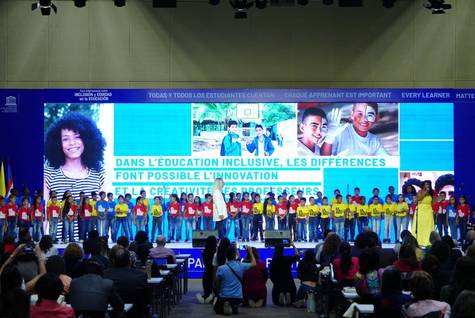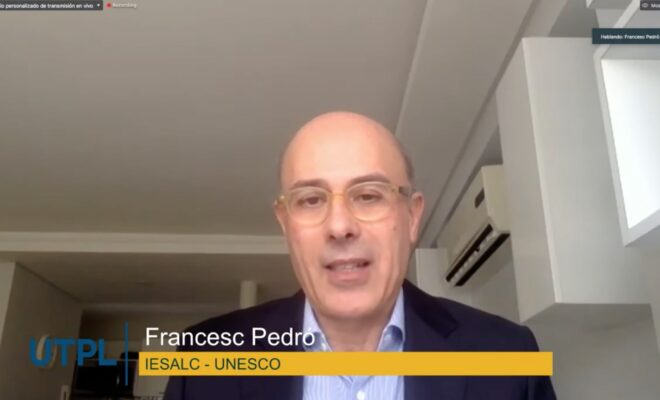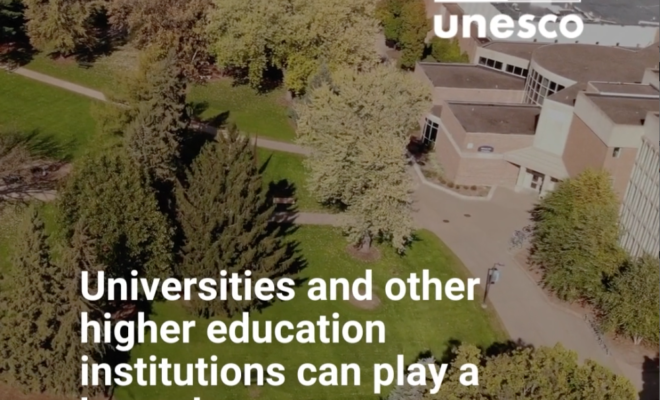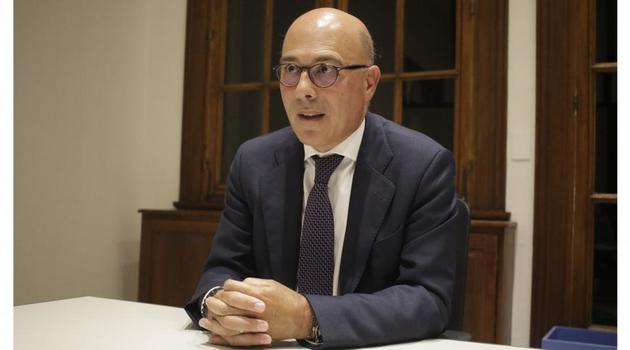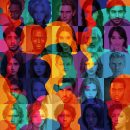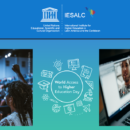Higher education must be on the international education agenda | University World News

Francesc Pedró | The absence of higher education from the debates around the international education agenda may hide the relative importance that the sector has for international development aid and no longer reflect developing countries’ policy priorities.
Over the past decades, a consensus about prioritising universal basic education and, increasingly, preschool education, has developed. Such a consensus emerges from the international community’s commitment to enforcing the right to education and draws on the evidence of the rate-of-return of universal basic education.
This primary emphasis has situated higher education in the margins of the international policy debates about development.
However, data shows that higher education is the education sub-sector that benefits the most from international aid, well beyond basic and secondary education: in 2017, one-third of all official development aid for education went to post-secondary education.
This fact may look surprising at first glance, given that the international debates focus mostly on basic education. And, yet, it is an indication of several facts converging.
On the one hand, in developing countries, the proportion of each cohort that gets access to higher education yearly ranges from 9% in Sub-Saharan Africa to 52% in Latin America and the Caribbean, according to UNESCO data on target 4.3 of Sustainable Development Goal (SDG) 4 for 2018.
These figures may still look low, but in Martin Trow’s seminal classification, they indicate the transition from elite to mass higher education – with 50% gross enrolment taken to indicate a country’s entering the so-called universal higher education stage.
Indeed, actual universal access to higher education may be seen as a dimension of the right to education and lifelong learning opportunities, the UNESCO International Institute for Higher Education claims.
On the other hand, recent evidence suggests that the return of investment in higher education is not only relatively high for the individual but also for society and the economy at large, with some researchers claiming that private and public returns are equivalent in size.
Public investment in higher education creates well documented externalities that, among other things, contribute to socio-economic development through health and civic outcomes, not to mention the direct effect on the labour market and a resulting environment that is more geared towards knowledge-oriented economies.
SDG potential
However, these economic analyses do not show the complete picture. No other education sub-sector has more potential than higher education to contribute to each Sustainable Development Goal (SDG), mainly through the combined three missions that universities pursue: teaching, research and the contribution to social and economic development.
On top of this, developing countries need to enlarge their professional and scientific capacities, both in the public and private sectors, to generate and manage their avenues to socio-economic development; again, no other sub-sector is better positioned to do this than higher education.
Even more, during the pandemic, countries are being reminded of their public responsibility towards higher education. As urged in a recent appeal to African ministers of higher education by the secretary general of the Association of African Universities, governments have the duty to strengthen their higher education institutions “by making them future-ready and able to survive and thrive in a world of uncertainty”.
Diminished presence in international debates
Nevertheless, the diminished presence that higher education has in international debates about education development is, first and foremost, a severe constraint to its further development.
First, it prevents the international community from factoring in higher education as a lever for development, with significant effects, through training and research, on health and education – the two cornerstones of development.
Second, it reduces the opportunities for multilateral cooperation, particularly South-South, and the creation of regional networks that can promote peer learning and collaboration.
Finally, instead of getting a transparent conversation about the dynamics of North-South cooperation in higher education, and the industry of international education that is frequently behind it, it prevents multilateralism from nurturing the debates and promoting disruptive concepts such as open science or open knowledge.
Moreover, it reduces the opportunities for creating cooperative efforts to address the most pressing challenges that higher education faces in developing countries through peer learning and joint capacity development.
Quality and equity
Indeed, there is an urgent need to sustain countries’ reform efforts to address their most pressing challenges. Two of them are the two sides of the same coin: quality and equity.
The expansion of higher education provision, with many states failing to provide an adequately matching offer, has resulted in the proliferation of low-cost, low-quality private institutions. The many avenues that could lead to better quality assurance and regulatory arrangements depend on capacity development efforts, mainly focusing on public governance of higher education.
The relatively high gross enrollment figures in higher education mask profound inequities that persist even when countries become middle-income, with striking differences across socio-economic strata, gender, ethnic origin and location.
The pandemic has brought to the forefront two more challenges that were already there.
One is innovation in teaching and learning. The growing importance of connectivity cannot be underestimated: on the one hand, it is an opportunity for many institutions to leapfrog in teaching methods through technology-supported educational innovations; and, on the other hand, it can reinforce regional virtual cooperation.
However, technology adoption and wider connectivity just create an enabling environment that can only become fertile if capacity development efforts are successful.
A second challenge is internationalisation, where the pandemic has given rise to virtual formats of student mobility.
These new formats could open the way to a radical reconsideration of mobility, where the current emphasis on quality assurance and mutual recognition, reflected in several global and regional conventions promoted by UNESCO, could be supplemented with an equity dimension.
For example, a more sustainable and rational approach to mobility can expand its benefits beyond the elites, and regional efforts could rebalance the direction of travels, contributing to the consolidation of regional knowledge and research spaces, as a recent UNESCO International Institute for Higher Education report revealed.
The pandemic will, for sure, have a negative impact on international aid for education development, and the resulting context may make it even more difficult now than before to rethink whether higher education should be a priority in the debates and resulting strategies – at least, at first glance.
A more thoughtful approach would consider what the effects of not embedding higher education in the international development agenda could potentially be, not only for economic recovery and development but also for equity in post-pandemic higher education.
This article published on University World News is taken from the World Access to Higher Education Day (WAHED) publication “Perspectives on the challenges to access and equity in higher education across the world in the context of COVID”, which will be launched on 24 September at 2pm until 3.30pm (GMT). The publication is a collection of 17 articles drawn from the WAHED 24 event on 17 November 2020 and sets the scene for this year’s WAHED on 17 November 2021. To register for this FREE online event please click here.
Image: iStock
RELATED ITEMS

